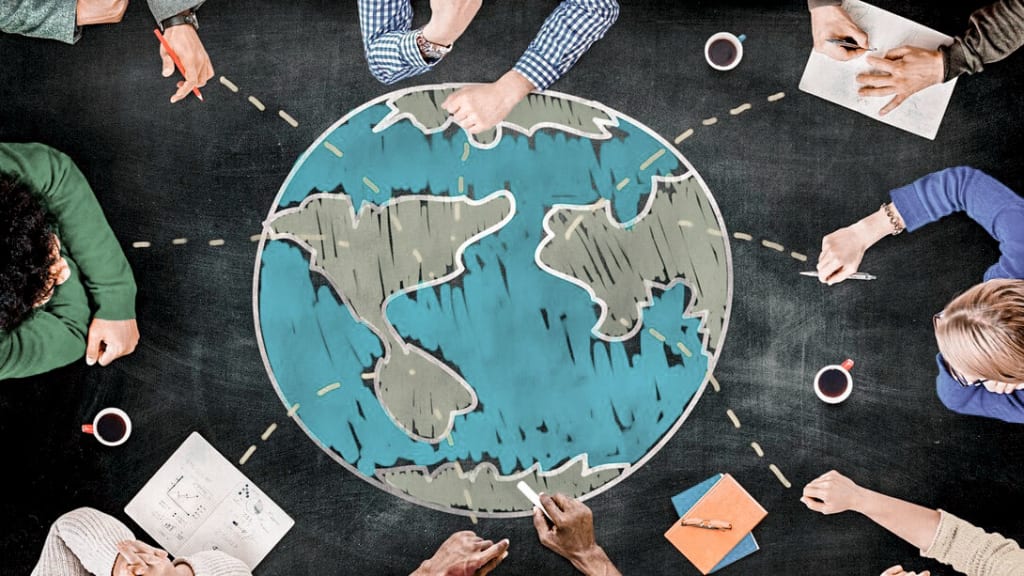Navigating Globalization
Understanding its Impact on Local Cultures

In the age of globalization, the world has become increasingly interconnected, with goods, ideas, and people moving across borders at unprecedented rates. While globalization has brought about numerous economic, social, and technological advancements, it has also raised concerns about its impact on local cultures. In this exploration, we delve into the complex dynamics of globalization and its effects on the diversity, identity, and resilience of local cultures around the world.
Globalization: A Double-Edged Sword
Globalization refers to the process of increasing interconnectedness and interdependence among nations, economies, and societies. It is driven by advances in technology, communication, and transportation, which have facilitated the flow of goods, services, capital, and information across borders.
While globalization has led to economic growth, technological innovation, and cultural exchange on a global scale, it has also raised questions about its impact on local cultures and communities. Critics argue that globalization can lead to cultural homogenization, as Western cultural products and values are spread around the world, displacing local traditions and identities.
Cultural Homogenization vs. Cultural Hybridity
One of the key debates surrounding globalization is the extent to which it promotes cultural homogenization or cultural hybridity. Cultural homogenization refers to the process by which local cultures become increasingly similar to one another, as globalized media, consumer products, and ideologies dominate the cultural landscape.
However, proponents of globalization argue that it also fosters cultural hybridity, as cultures interact, borrow, and adapt elements from one another. This process of cultural exchange can lead to the emergence of new hybrid cultures and identities that blend global and local influences, enriching the cultural tapestry of human societies.
The Impact of Globalization on Language and Communication
Language is a central component of culture, serving as a vehicle for expressing identity, transmitting knowledge, and preserving traditions. However, globalization has led to the dominance of a few major languages, such as English, Spanish, and Mandarin, as global lingua francas for business, diplomacy, and education.
While the spread of a common language can facilitate communication and collaboration on a global scale, it can also marginalize minority languages and dialects, threatening linguistic diversity and cultural heritage. Efforts to revitalize and preserve endangered languages are thus crucial for maintaining cultural diversity in the face of globalization.
Globalization and the Rise of Consumer Culture
Globalization has also led to the spread of consumer culture, characterized by the proliferation of global brands, consumer products, and lifestyles around the world. Western consumer culture, with its emphasis on consumption, individualism, and material wealth, has become synonymous with modernity and progress in many parts of the world.
However, the spread of consumer culture has led to concerns about its impact on local economies, environments, and traditional ways of life. Critics argue that the commodification of culture can erode local traditions, values, and social structures, as communities prioritize consumption and economic growth over cultural preservation and sustainability.
Cultural Resistance and Resilience in the Face of Globalization
Despite the challenges posed by globalization, many local cultures have demonstrated resilience and adaptability in the face of change. Cultural resistance movements, grassroots initiatives, and community-based projects have emerged around the world to protect and promote local traditions, languages, and identities.
Indigenous communities, in particular, have been at the forefront of cultural resistance efforts, fighting to preserve their ancestral lands, languages, and cultural practices in the face of encroaching globalization. Through activism, education, and cultural revitalization projects, these communities are reclaiming their cultural heritage and asserting their rights to self-determination and sovereignty.
Conclusion: Navigating the Global-Local Nexus
In conclusion, globalization presents both opportunities and challenges for local cultures around the world. While it has led to cultural homogenization and the erosion of traditional identities in some contexts, it has also fostered cultural hybridity, innovation, and resilience in others.
As we navigate the complex dynamics of globalization, it is essential to recognize the value of cultural diversity and to support efforts to preserve and promote local cultures and traditions. By fostering dialogue, collaboration, and mutual respect between global and local communities, we can harness the power of globalization to create a more inclusive, equitable, and culturally rich world for future generations.
About the Creator
Mohamed Ali
Mohamed Ali is a passionate writer and researcher with a keen interest in exploring the complexities of human behavior and society through the lens of sociology. With a background in sociology and psychology.






Comments
There are no comments for this story
Be the first to respond and start the conversation.